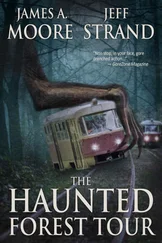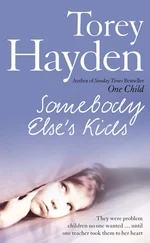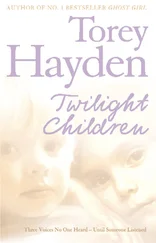Down on the alkali flats below the hill grew sunflowers. They may have been wild ones, springing up after the summer downpours had flooded the flats. Or maybe they were cultivated. My memory doesn’t serve me there. What I do remember is sitting on the porch and looking down on all those sunflowers.
They were beautiful from the hill. The big golden heads would track the sun through the day, and that made them seem as if they were looking at me part of the time and looking away the other. Sometimes children would come and play there. From where I was sitting on the hill, I could see them, small as insects, disappear amid the flowers and the huge heads would nod and sway as the children ran among them. Laughter would ride up the hill on the wind.
I longed to go down there myself. The sunflowers beckoned to me welcomingly. Certainly I didn’t have permission the day I did go. I remember slipping down the rough prairie grass of the hillside, keeping low to the ground to stay out of Mama’s sight, in case she glanced out the window. Then I ran across the flats and into the shadows of the flowers. My biggest concern was not getting caught.
When I ran among the sunflowers, I discovered they were gigantic, a veritable forest, not small, the way they appeared from the hilltop. The flowers were high above my head, and before I realized what was happening, I was deep among the tall stalks. With each step I took, the green-and-gold wilderness closed silently behind me. In no time at all, I was lost, trapped.
I screamed.
I flailed about amid the sunflowers, hysterical, crying in terror to get out. The flowers went on and on in all directions, and I could not escape. Panic-stricken, I thrashed and screamed and was swallowed up.
Mama found me. From the house on the hilltop she could hear my terrified crying. She’d come crashing in among the sunflowers, bending them aside, pushing them down. They were even taller than she was.
In her hurried slide down the hillside to reach me, she had slipped and scraped her knee. I remember clutching frantically at her and tasting blood mixed with my tears. She pulled my fingers apart and lifted me up on her shoulders so that my head was above the flowers and she carried me out.
What I remember with brittle sharpness is that final moment, being on my mama’s shoulders. I remember turning and looking back at the forest closing behind us, the flowers bright in the Texas sun, and innocent and heartless.
For my mother, however, sunflowers had an entirely different connotation. They were of almost mystical significance for her. Sunflowers had grown wild in the back garden of their cottage in Wales after the war. The way Mama talked about it, it was easy to tell that she perceived the appearance of those unexpected sunflowers as practically a religious experience. They were the sign of her resurrection, and she knew she had managed to pass through her season in Hell.
My mother loved to tell us about those years in Wales. They were among her very best stories, spun out in epic, almost myth-like proportions, laced with lyrical descriptions of an aged land. I loved them above all the others, not only because she made them so beautiful to listen to, but also because they were the only stories about her life after the war that had the same magnificence as her tales of Lébény and her girlhood. They reassured me that she still had the capacity to be happy and that all her joy had not been dragged from her by the horrors of the war.
The translated name of the cottage was Forest of Flowers. It was high up a mountainside in north Wales. Mama always told us how she and Daddy had had to climb the last half mile to the cottage on a small, steep path. I had a very romantic image of Forest of Flowers in my mind. I could see the narrow, meandering trail passing through sun-dappled woods, the forest floor a carpet of snowdrops and bluebells and populated with little Thumpers and Bambis. And there in the clearing, like Snow White’s cottage, was Mama’s holly hedge and the winter jasmine and the quaint wooden arch, all leading up to the whitewashed Forest of Flowers.
Those were her sunflower years.
In Kansas, sunflowers are grown commercially. If you go out in the late summer along the small country roads in western Kansas, you’ll come upon field after field of flowers, a sea of golden, nodding heads. In the time since we’d moved to Kansas, it had become a family ritual to drive out every few weeks to watch the progress of the sunflower fields from planting in March to harvesting in mid-autumn. In spite of that childhood experience, which still came back to me in nightmares, I enjoyed these journeys, although I never could bring myself to walk down the narrow rows between the stalks, planted in military straightness, the way Mama and Megan did. For my mother especially this observation of the sunflower crop was a most pleasurable way of marking the year. The sunflowers were the single redeeming feature of Kansas for my mother.
By mid-March the ground underfoot was spongy and smelled of newness. The sun had grown surprisingly hot in the space of a few weeks. It was a Saturday afternoon, but despite the weather, I was in my room studying. On the next Monday we were having an exam in calculus, and I’d be the first to admit that calculus was not my best subject. It wasn’t going to be an easy test either. Mrs Browder told us on the previous Friday that she was intending to give us a set of ten problems and we had to solve eight of them. So I was frantically going back over old assignments to make sure I knew how to do them.
Mama came to the open door of my room. ‘I feel like a walk,’ she announced.
This caught me completely unawares because my mother had not been out of the yard since the end of January. I turned from my desk to see her standing in the doorway. She was dressed in old tan corduroys and a plaid shirt. She had one of Dad’s pullovers on, and her hair tied back with a yarn ribbon. She smiled at me, knowing, I think, that she’d surprised me.
‘They’ll be starting to put the sunflowers in,’ she said. ‘And I want to walk out and see.’
‘Mama, it’s quite a walk. Most of those fields are at least a couple of miles away or more. If you wait until Daddy comes home, I’m sure he’ll take you out in the car.’
She remained in the doorway. She had a small smile that gave her a look of amusement. ‘Come with me, baby. We can walk that far. It’s such a beautiful day, and I’m longing to move my legs.’
‘We don’t even know for sure if they’re putting them in the same fields as last year. I think we ought to wait for Dad.’
‘I have cobwebs in my legs. Come along with me. I want to walk.’
I turned back to my books for a moment. ‘I can’t, really, Mama. I have a calculus test on Monday morning. And I honestly think I might not pass it. Not if I don’t study; because I don’t understand how to do all these problems. In half of them I can’t even tell what they’re looking for.’
She continued to stand there, silent but insistent. It was difficult ever to deny my mother things.
‘Maybe Daddy can take us all out in the car tomorrow,’ I said. ‘We could have a picnic. Why don’t we do that?’
Mama still had the small smile on her face. She looked young to me then, standing there in those old clothes. She had an ageless quality to her facial expressions that made it very difficult for people to guess her age.
‘What about Megs?’ I suggested when it became apparent Mama wasn’t going to give up the idea. Megan was downstairs doing something in the kitchen. I knew because I’d been hearing her throughout my studying. Megan never had been what you could call a quiet child. ‘I bet Meggie would love to go with you. Why don’t you ask her?’
Читать дальше












